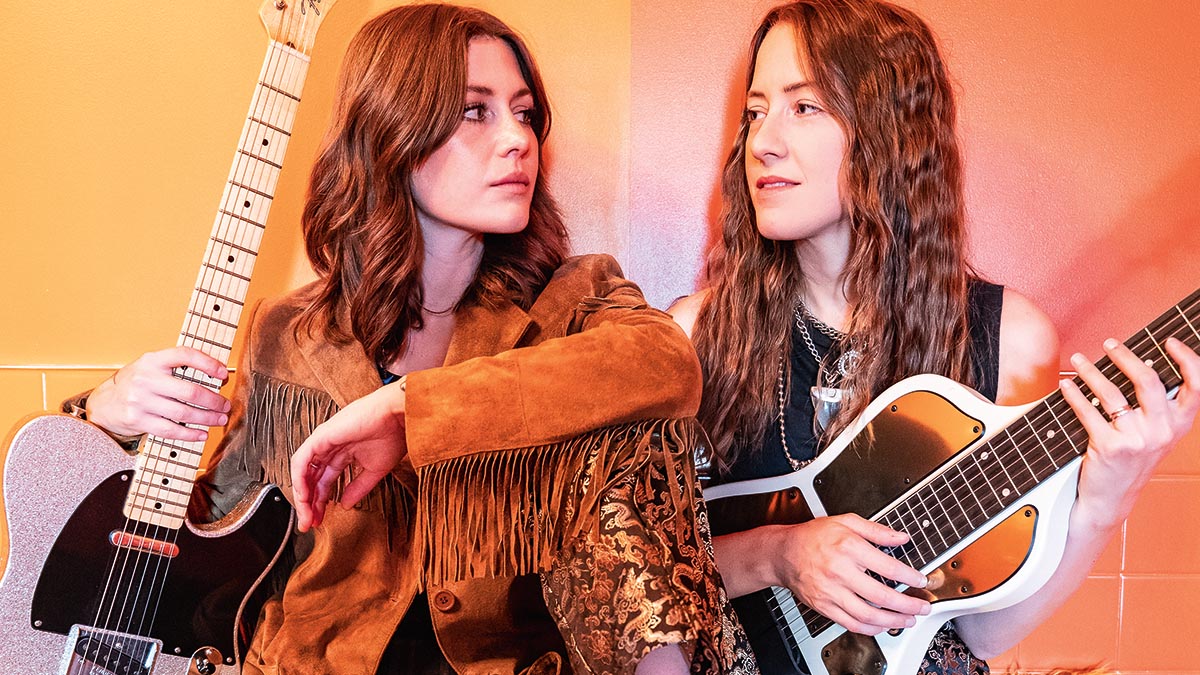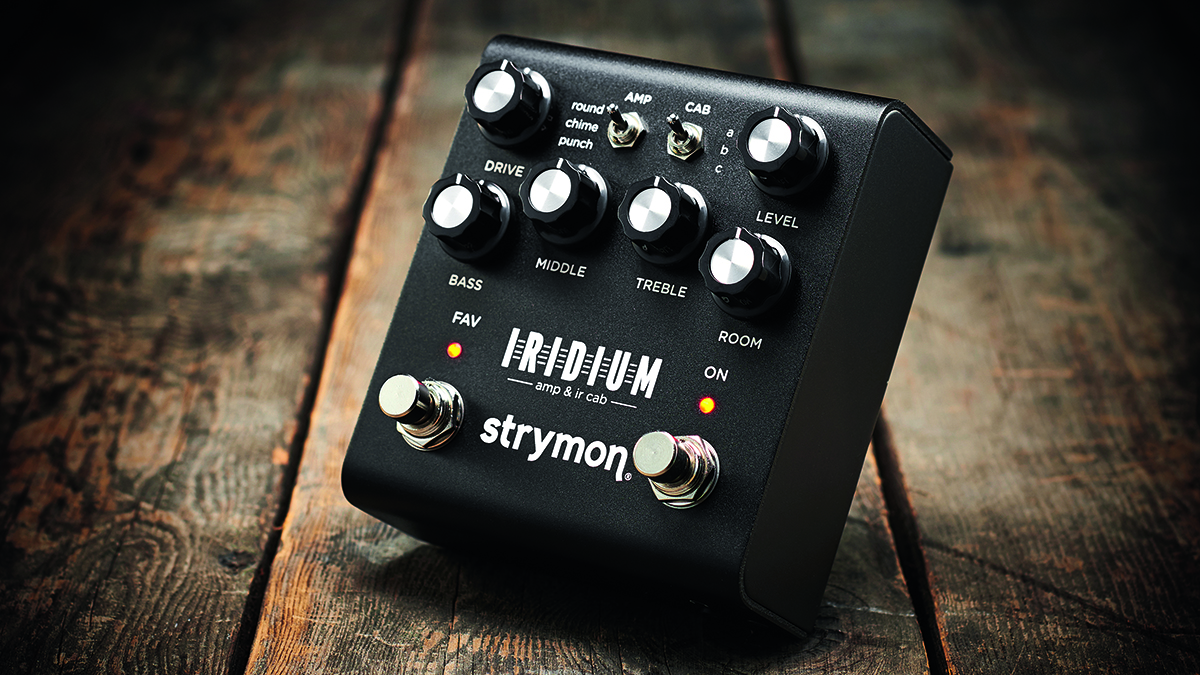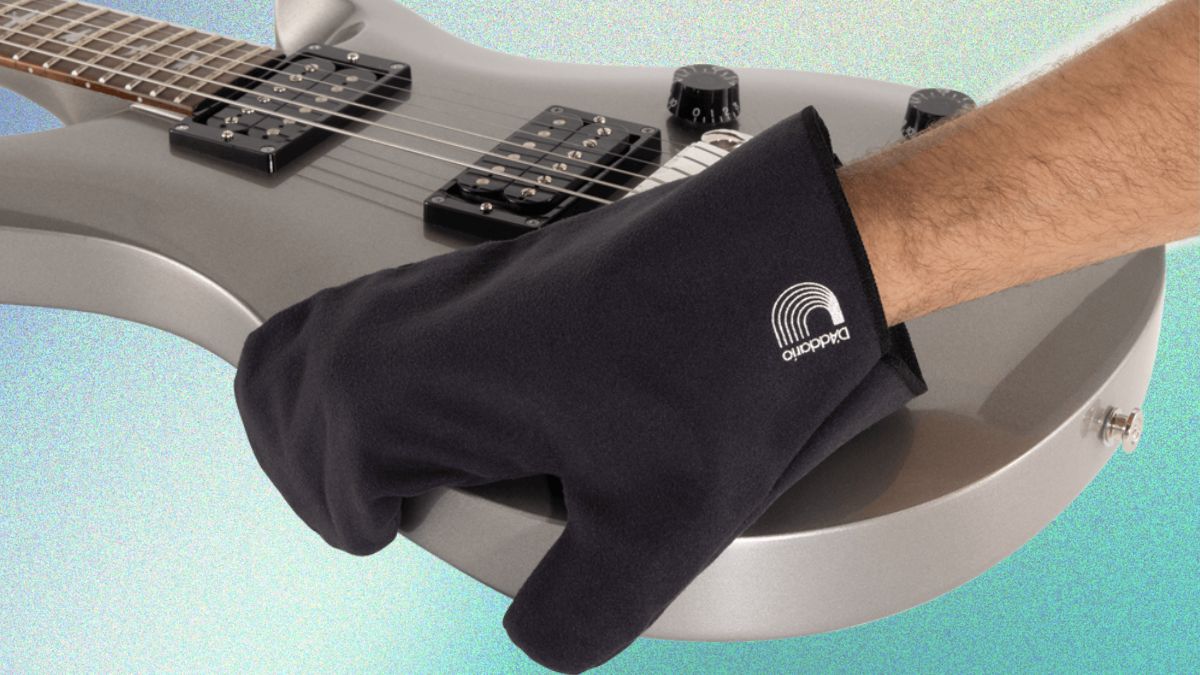“Every guitarist should be in search of their toothpaste tone!” Larkin Poe explain how good guitar tone can make your playing better
Roots rock sister duo Megan and Rebecca Lovell on what makes drive pedals essential for shaping your soloing, why even blues players shouldn’t dismiss amp modelers – and what toothpaste tone actually is…

All the latest guitar news, interviews, lessons, reviews, deals and more, direct to your inbox!
You are now subscribed
Your newsletter sign-up was successful
GUITAR SHOWCASE 2023: Just because Larkin Poe’s Rebecca and Megan Lovell have long moved to in-ear monitors on stage doesn’t mean tone – the very epicurean quality of it – has been downgraded in their list of priorities. If anything, it’s more important now that they take a direct feed each night.
Here, the roots rock sister duo check in with Total Guitar to share their thoughts on guitar tone and what we can do to improve ours.
Start with the sound that inspires you most
Megan: “Tone is really important to me. As a slide player, it’s such a big part in harnessing that vocal quality of the style – which is actually what drew me to it in the first place. I have been searching for the ultimate tone for a very long time! I started out on Dobro and then picked up a 1940s Rickenbacker lap steel in my mid-teens. I was so struck by the tone of the Rickenbacker because it was so beautiful and mellow.
“I’m really glad I found that guitar early on, because it determined my sound through the years. I’m definitely the kind of person who finds something tried and true, and then likes to stick with it and build on it.
“So I found a tone I liked early on and it helped me zero in on what I was looking for. Just recently I have been developing my own signature with Beard Guitars inspired by that Rickenbacker with a custom Lollar Horseshoe pickup. I think we got close to that vintage sound, which is great because no one wants to bring a 70-year-old instrument out with them on tour!”
Amp modelers shouldn’t be sniffed at

Rebecca: “My main tone right now is a Stratocaster going into the MXR Sugar Drive, which is a Klon clone. It’s so itty-bitty but it sounds huge and has become my favourite overdrive, going into my Fender Deluxe. But another thing that I’ve been amazed by is the Iridium by Strymon.
“We do so much overseas touring that being able to have a level of consistency is really important to us, especially when we can’t rely on the quality of the backline. It’s basically an amp modeler in the form of a pedal.
All the latest guitar news, interviews, lessons, reviews, deals and more, direct to your inbox!
“It sounds unbelievable! We use in-ears and I know a lot of players find it to be a diminutive experience – it can make you feel a lot smaller than stood next to a cranked amp. But honestly having the Iridium running into our in-ears is not disappointing at all.”
Learn from the masters
Megan: “Tone has such a huge impact on what I come up with, especially in terms of sustain. If I plug in and don’t have that grit, I find things very difficult. I wish I was the kind of person who could plug into any amp and just go, but I need some sort of drive in order to play how I play.
“Some people can really rock a clean lap steel and it will have more of that Hawaiian country sound, but that’s never been me. I live on the more rock ’n’ roll side of lap steel! I think David Lindley is one of the greatest lap steel players of all-time. Everyone should check out his solo on Running On Empty, it’s as iconic as it gets. I also think The Dark Side Of The Moon by Pink Floyd has some of the best lap steel tones ever recorded.
Rebecca: “In terms of my favourite tones ever recorded, I think Brian May is really high up there. Even though I don’t feel like I emulate his playing very much, on songs like Killer Queen he really drew me into the melodic nature and texture of guitar tones. We listened to a lot of rock records as kids.
“There was always something really unique and vocal about Brian’s tone – it ignited my imagination about the capability of a guitar. It’s an instrument that could be like the human voice and play lines that are incredibly singable. His tone is like toothpaste! Every guitarist should be in search of their toothpaste tone!”
Context is key
Megan: “There’s a lot to consider in terms of the context of our tones. The two of us have definitely impacted each other because our band basically has two lead guitarists – we have to make sure our sounds don’t cancel each other out. So we try to find some different tones and ranges to coexist in.
“I could probably be more full-blown when it comes to overdrive but I try not to because Rebecca tends to occupy that space. I have to stay a hair cleaner to lay off of her tone. I tend to plug into my TB Drive pedal by Rodenberg, which is Tyler Bryant’s signature and kinda like two Tube Screamers stacked.
“It’s a really great pedal and has such a warm drive… because as a slide player, there’s so much metal on metal on metal, I’m always looking to bring in those low mids. This pedal does a great job with that. I run that pedal into a Fender Deluxe and that’s all I need.”
Rebecca: “That’s why it’s good to think of your tone in the context of the other players in your band. Try to make sure you have the whole spectrum covered rather than beating a dead horse of one singular vibe. Sometimes I’ll use different pedals to cover different spaces.
“I have to shout out the Royal Jelly overdrive/fuzz blender by Beetronics. That’s been really a cool pedal for me to experiment with. It’s very versatile, you can do so much with it thanks to the EQ sweeps.
“It’s funny, a lot of people think it’s an octave sound when I kick it on for a solo, but it’s not. It just has such a broad range, especially on the low end, that it gives that you that feeling of things being extra beefy and fat. It’s a very inspiring pedal to solo on!”
Amit has been writing for titles like Total Guitar, MusicRadar and Guitar World for over a decade and counts Richie Kotzen, Guthrie Govan and Jeff Beck among his primary influences as a guitar player. He's worked for magazines like Kerrang!, Metal Hammer, Classic Rock, Prog, Record Collector, Planet Rock, Rhythm and Bass Player, as well as newspapers like Metro and The Independent, interviewing everyone from Ozzy Osbourne and Lemmy to Slash and Jimmy Page, and once even traded solos with a member of Slayer on a track released internationally. As a session guitarist, he's played alongside members of Judas Priest and Uriah Heep in London ensemble Metalworks, as well as handled lead guitars for legends like Glen Matlock (Sex Pistols, The Faces) and Stu Hamm (Steve Vai, Joe Satriani, G3).



